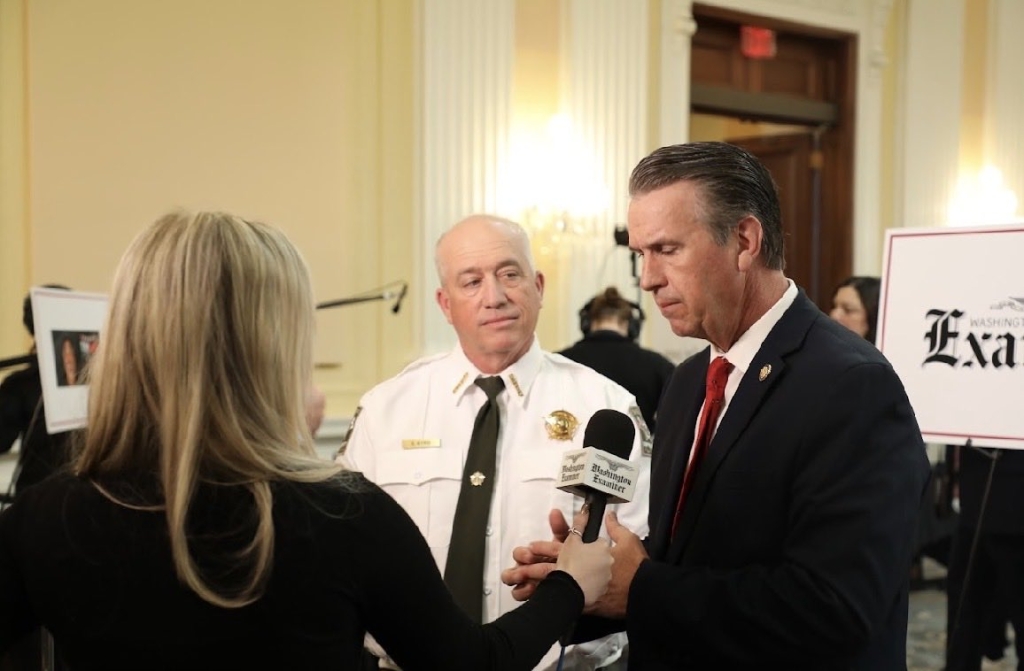Imagine driving down the road on your way to buy a used car. Police stop you and find $1,500 cash in your car. The officers say the money came from a crime, and they take it.
You, however, are never charged with a crime. If you want your money back, though, you have to go to court and prove it didn’t come from illegal activity. Otherwise, law enforcement can keep it.
It’s a process called civil asset forfeiture, and it’s allowed by federal and state law in Alabama.
A cornerstone of the American justice system is the principle that you’re innocent until proven guilty. Civil asset forfeiture turns the principle upside down. Under current Alabama law, your property is guilty until you prove its innocence.
The government is allowed to seize and confiscate cash, vehicles, guns and other private property on the mere suspicion that it was either involved in a crime or came from criminal activity.
That’s why I’m co-sponsoring a bill with my colleague, Sen. Arthur Orr (R-Decatur), that would not only require a criminal conviction before someone’s property in Alabama could be permanently taken by the government, but would also require more transparency in the process.
The state’s unified state court database, Alacourt, already maintains a record of all civil asset forfeiture cases, but that data isn’t available to the public and doesn’t describe how the government uses property obtained through civil asset forfeiture.
It’s not enough for a voluntary system of generalized data compilation to be set up by the same government actors who benefit financially from keeping forfeiture processes secret. The public should know exactly what local and state governments are doing with the money and assets they take from citizens—something the voluntary system does not accomplish.
Reports have been compiled across the country detailing the property rights violations involved in civil asset forfeiture and have motivated legislators to change their states’ systems.
In South Carolina this year, the Greenville News found that nearly one-fifth of people in the state whose property was seized were never charged with a crime.
That is, quite simply, a perversion of justice, and it’s why 111 of 124 House members in South Carolina co-sponsored legislation to bring all forfeitures into the criminal process and prevent property rights violations. The Arkansas legislature voted unanimously last month to severely limit civil asset forfeitures. If the bill is signed into law by Republican Gov. Asa Hutchinson, Arkansas will join three states —North Carolina, New Mexico and Nebraska — that have severely curtailed or abolished asset forfeiture.
Civil asset forfeiture was sold to the public during the so-called “War on Drugs” in the 1980s as a tool for taking drug kingpins’ ill-gotten gains. But in practice, drug kingpins are rarely the targets.
In South Carolina, more than 55 percent of the time when police took cash, they seized less than $1,000.
That’s likely money that people needed for rent, childcare, groceries, or clothes. It’s also lower than the typical cost of hiring an attorney to challenge the seizure in court, which may explain why many property owners do not go to court to contest forfeiture actions, and law enforcement keeps property.
It’s time for us in the Alabama Legislature to place the burden of proof for property’s innocence where it belongs — on the state. Our bill would solve four major issues posed by civil asset forfeiture.
First, it would require the government to use the criminal process to forfeit property, meaning only people convicted of a crime could have their money and assets taken. This would protect the constitutional interests of innocent property owners.
The bill would also strengthen the interests of other property owners – such as spouses, parents, business owners and creditors – who are often not aware that their property seized and forfeited was involved in, or produced from, criminal activity.
Third, as mentioned above, it would promote government transparency by requiring annual reporting of all state and local government seizures and forfeitures and how the proceeds are used.
Last, but not least, the bill would limit the state’s ability to take part in the federal government’s asset forfeiture – which is currently a way of skirting around state law.
If our bill becomes law, Alabama will follow North Carolina, New Mexico, Nebraska, 27 other states and Washington, D.C., that have reformed their civil asset forfeiture laws to protect innocent property owners since 2014.
By embedding the asset forfeiture process within a criminal proceeding, we can ensure that Alabama, too, will go after only bad actors, while continuing to allow law enforcement to have the tools it needs to confiscate property that’s tied to proven criminal activity.
We must stand up for the rights of our law-abiding citizens by refusing to let the government thwart Constitutional protections and take their property away.
Tom Whatley is a state senator from Auburn.













